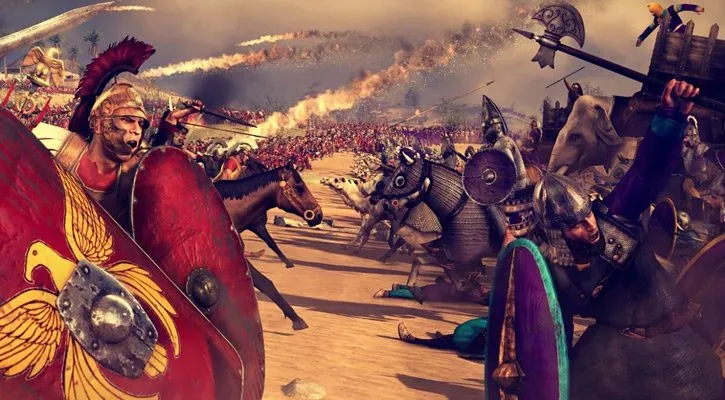Wars have shaped the course of human civilization for thousands of years, but some wars last longer than a generation, evolving to decades or more than a century. Long historical wars generally stemmed from territorial disputes, religious conflicts, dynastic claims, and geopolitical changes. These wars are also distinct from a brief, intense battle in that there is often a cast of competing rulers, changing strategies, and dramatic changes in military power.
Many long historical wars not only changed borders but also led to the downfalls of empires abroad and the rise of various political systems. By investigating the longest wars in world history, we learn how deep-sitting conflicts can be and that they have hold on global relationships today. This list includes the seven longest wars ever fought, while offering background into the conflicts, timeframes, and end results that altered world history.
Check Out: List of Top 6 Longest Ruling Kings in World History
Top 7 Longest Wars in World History
Here are the top 7 Longest Wars in World History along with countries involved and duration. This list is based on the data by Imperial War Musuem:
| Rank | Name of the War | Countries / Parties Involved | Duration (Years) |
| 1 | Iberian Religious War (Reconquista) | Christian Kingdoms of Iberia vs. Muslim Moors (Umayyads, Almoravids, Almohads, Nasrids) | 781 years (711=1492) |
| 2 | Roman-Persian Wars | Roman Empire / Byzantine Empire vs. Parthian Empire / Sassanian Empire | 682 years (54 BC-628 AD) |
| 3 | Anglo-Welsh Wars | Kingdoms of England vs. Welsh Kingdoms | 483 years (c. 800-1283) |
| 4 | Three Hundred and Thirty-Five Years’ War | Netherlands vs. Isles of Scilly (UK) | 335 years (1651-1986) |
| 5 | Hundred Years’ War | England vs. France | 116 years (1337-1453) |
| 6 | Dutch-Portuguese War | Dutch Republic vs. Portugal | 60 years (1601-1661) |
| 7 | Greco-Persian Conflicts | Greek City-States (Athens, Sparta, etc.) vs. Persian Empire | 50 years (499-449 BC) |
1. The Iberian Religious War
(711–1492) 781 Years

The Iberian Religious War (often referred to as the Reconquista) was one of the longest wars in history. It was an extended conflict that lasted from 711 to 1492 featuring a war in the Iberian Peninsula between the Christian kingdoms and the Muslim rulers that were established by the Umayyad Caliphate in Spain.
This ethnic war consisted of shifting alliances, the disresolution of states, and continued fighting for territory. This protracted conflict officially ended in 1492 with the capture of Granada, which was the last Muslim state.
2. The Roman-Persian Wars
(54 BC-628 AD) 682 Years

The Roman-Persian Wars were hundreds of years of intermittent warfare between the Roman Empire and (the later Byzantine Empire) and the Parthian/Sassanian Empires of Persia.
The face-off lasted nearly 700 years and largely involved the control of Mesopotamia and Armenia, and strategic trade routes. Both empires would eventually be weakened through their prolonged conflicts with each other enough to provide the opportunity for the rise of Islamic Caliphates.
3. The Anglo-Welsh Wars
(c.800-1283) 483 Years

The Anglo-Welsh wars otherwise known as the Anglo-Welsh conflict consisted of a series of battles between emerging English kingdoms and multiple Welsh rulers as they resisted the invasion of their lands.
The wars included multiple raids, changing borders, and also cultural resistance. By 1283, the wars officially came to an end when Wales was conquered by King Edward I of England but revolting continued for years later.
4. The Hundred Years’ War
(1337-1453) 116 Years
The Hundred Years’ War is one of the most well-known wars in European history fought largely between England and France over succession to the French crown of the late 14th and early 15th centuries.
Some notable events during the war include the development of the longbow, the rise of a sense of nationalism, and, of course, the short-lived but immensely impactful leadership of Joan of Arc. France would eventually emerge the victor establishing a French monarchy.
5. The Dutch-Portuguese War
(1601-1661) 60 Years
This conflict took place across multiple continents with competition for control of colonial power. The two nations fought each other for control of profitable trade routes and colonies around the world, which included a number of territories in Africa, South America, and Asia.
In the end, the Netherlands won some strategically locations; however both nations suffered very heavy economic losses.
Conclusion
All the longest wars were not necessarily single, but rather complicated, extended battles heavily influenced by politics, religion, economy, and transfer of power evolving from party to party. In their wake, the longest wars re-shaped nations, redrew maps of the world, and had notable cultural significance.

Comments
All Comments (0)
Join the conversation